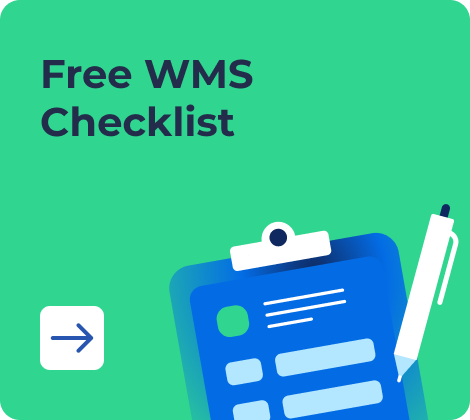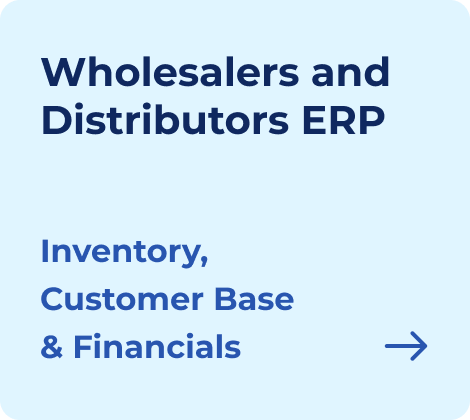The wholesale e‑commerce marketplace is the whole transformation in how businesses get connected with suppliers and buyers. Thus, with a wholesale e‑commerce platform, one can ease the operations, access suppliers, and sell products across borders with ease. Unlike traditional wholesale processes, the e‑commerce solutions provide scalable transactions that meet the demands of today’s B2B markets.
Since the online platforms for wholesalers are constantly evolving, a company can be flexible enough to meet the changes in the industry and remain competitive in the process. For businesses, going into wholesale e‑commerce opens up all possibilities for sustainable growth and increased market coverage.
Understanding Wholesale E‑commerce
Wholesale e‑commerce is rapidly becoming a staple of B2B operations, offering distinct advantages over traditional wholesale methods. This section explores the definition of wholesale e‑commerce, its key role in modernizing business transactions, and contrasts it with conventional wholesale practices.
What is Wholesale E‑commerce?
Wholesale e‑commerce refers to the process of selling goods in bulk to businesses through online platforms. It connects manufacturers and suppliers with retailers or other businesses, allowing transactions to happen more smoothly and efficiently than traditional methods. Instead of relying on in-person negotiations, wholesale e‑commerce platforms enable businesses to manage orders, track shipments, and communicate with suppliers — all digitally.
This shift not only speeds up the purchasing process but also offers greater flexibility, allowing buyers to place orders at any time from anywhere. By using a wholesale e‑commerce platform, businesses can access a wider range of products, from wholesale e‑commerce products to specialized goods, which streamlines procurement and ensures consistency of transactions.

Traditional vs. E‑commerce Wholesale Models
The transition from traditional wholesale practices to e‑commerce has brought significant changes to how businesses operate. Below is a comparison of both models that highlights the key differences and the advantages of adopting e‑commerce wholesale platforms over conventional methods.
| Aspect | Traditional Wholesale | E‑commerce Wholesale |
Transaction Method |
In-person, phone calls, faxes, or face-to-face meetings |
Online orders via e‑commerce platforms |
Speed of Transactions |
Slow, with delays due to manual processes |
Fast, with automated order processing |
Order Management |
Manual, often requiring phone calls or emails to confirm |
Automated, with online tracking and order confirmation |
Accessibility |
Limited to business hours and local geography |
24/7 access from anywhere, catering to global customers |
Product Range |
Limited by physical space and regional availability |
Extensive, offering a wide range of e‑commerce wholesale products |
Error Risk |
Higher due to manual entry and miscommunication |
Lower, as automated systems reduce the risk of human error |
Supply Chain Visibility |
Poor, often requiring direct contact with multiple intermediaries |
Clear, real-time visibility into stock levels and shipping updates |
Scalability |
Limited by the need for additional staff and infrastructure |
Easily scalable with minimal additional overhead |
Key Types of Wholesale E‑commerce Models
Wholesale e‑commerce offers diverse models, enabling businesses to choose options that align with their operational needs and market goals. Each model provides distinct advantages in terms of accessibility, scalability, and customer engagement.
B2B Wholesale Platforms
B2B wholesale platforms are designed to facilitate transactions between businesses, streamlining procurement and inventory replenishment. Platforms like Shopify cater specifically to wholesalers, offering tools such as bulk ordering features, custom pricing for different client tiers, and integrations with inventory management systems.
These platforms simplify order management while fostering long-term supplier-buyer relationships. They are an ideal choice for companies looking for centralized control and seamless scalability in their e‑commerce operations.
Our clients enhance their e‑commerce business efficiency by managing their inventory, orders, and production, analyzing their profits, and automating business routines in Kladana.
To ensure smooth operations and considerably save time they connect Kladana with the e‑commerce platforms based to their specific needs: Shopify, WooCommerce, Ecwid, and Magento.
Marketplace Models
Online marketplaces connect wholesalers and buyers from across the globe. These platforms serve as an online hub for wholesale suppliers and e‑commerce products, offering unmatched market reach and opportunities for scaling operations.
Buyers benefit from the ability to compare products, pricing, and suppliers within a single platform, while sellers gain visibility to a vast audience without the need to build independent websites. Marketplace models are particularly appealing for businesses looking to explore new markets or sell excess inventory.
Hybrid Approaches
Hybrid approaches combine elements of B2B and B2C strategies, allowing businesses to cater to multiple customer segments. For instance, a wholesaler might use an e‑commerce platform to sell products in bulk to businesses while also offering retail options for individual consumers.
This approach maximizes revenue potential and improves adaptability, making it easier to shift strategies based on market demands. Hybrid models also allow businesses to test product lines with retail buyers before committing to larger wholesale production.
Benefits of Wholesale E‑commerce for Businesses
Wholesale e‑commerce provides a transformative approach to managing operations and scaling businesses. By adopting digital platforms, companies can streamline processes, reach broader markets, and improve profitability.
Streamlined Business Operations
Wholesale e‑commerce platforms simplify day-to-day tasks, reducing manual effort and errors.
Key advantages include:
- Centralized inventory management. Businesses can monitor stock levels across multiple locations, ensuring optimal availability of wholesale e‑commerce products.
- Automated order processing. Features like bulk ordering and automated invoicing improve efficiency and save time for wholesale B2B e‑commerce operations.
- Effortless customer management. Tools within the best wholesale e‑commerce platforms facilitate managing client tiers, custom pricing, and communication.
These improvements allow businesses to focus more on strategic goals while maintaining operational efficiency.
Enhanced Market Reach
Shifting operations to wholesale e‑commerce websites helps businesses overcome geographic limitations. Online platforms for wholesalers, such as marketplace models or independent websites, connect businesses with a global audience.
Advantages of this reach include:
- Access to international buyers, fostering new business relationships.
- Enhanced visibility of wholesale e‑commerce deals through SEO optimization and targeted advertising.
- Expansion into untapped markets without the cost of physical storefronts.
A broader reach strengthens brand presence and diversifies revenue streams.
Cost Efficiency and Revenue Growth
E‑commerce applications in wholesale reduce operational expenses while boosting profitability.
Key benefits include:
- Lower overhead costs. Eliminating physical infrastructure needs reduces expenses.
- Optimized sales processes. Digital platforms enable quicker transactions, ensuring customer satisfaction.
- Data-driven strategies. Insights from analytics on wholesale e‑commerce platforms help businesses make informed decisions for future growth.
Read‑alikes
Strategies to Succeed in Wholesale E‑commerce
Succeeding in wholesale e‑commerce involves focusing on key strategies that streamline operations, foster relationships, and meet market demands effectively.
Building Strong Supplier and Buyer Relationships
The success of a wholesale e‑commerce platform often depends on the quality of its partnerships. Maintaining trust and transparency with ecommerce wholesale suppliers and buyers leads to long-term stability.
- Open communication. Keep suppliers and buyers informed about stock availability, pricing changes, and delivery timelines.
- Reliable fulfillment. Consistently meeting expectations for wholesale B2B e‑commerce transactions strengthens credibility.
- Collaborative growth. Work closely with wholesale suppliers for e‑commerce to identify emerging trends and stock relevant wholesale e‑commerce products.
Strong relationships ensure mutual growth and create a loyal network that supports business expansion.
Leveraging Technology and Data
E‑commerce applications in wholesale thrive on data-driven decisions. Integrating technology transforms how businesses manage operations and optimize performance.
- Analytics. Use insights from wholesale e‑commerce websites to track buyer behavior, forecast demand, and refine inventory strategies.
- Automation. Streamline order processing, invoicing, and shipment tracking to save time and reduce errors.
- AI tools. Implement AI to personalize recommendations on e‑commerce wholesale products and predict buyer needs.
These tools not only improve efficiency but also help businesses stay competitive in a modern market.
Customizing the Wholesale Experience
Meeting the unique needs of buyers is key to standing out in the e‑commerce wholesale market. Customization fosters loyalty and improves satisfaction.
- Tailored pricing. Offer flexible pricing models for bulk buyers or repeat customers.
- Exclusive deals. Use online platforms for wholesalers to share personalized e‑commerce wholesale deals with key clients.
- Localized offerings. Adjust product assortments to align with the preferences of specific regions or buyer groups.
A personalized approach enhances the buyer experience and establishes the business as a preferred partner in wholesale e‑commerce.
Frequently Asked Questions on Wholesale E‑commerce
What is the difference between retail and wholesale e‑commerce?
Retail e‑commerce serves individual consumers purchasing small quantities, while wholesale e‑commerce facilitates bulk transactions targeted at businesses. Wholesale ecommerce websites offer features like tiered pricing, bulk order discounts, and streamlined logistics tailored to high-volume transactions.
What are the key benefits of wholesale e‑commerce for small businesses?
Wholesale e‑commerce enables small businesses to expand their reach, reduce operational costs, and enhance efficiency. By leveraging a wholesale e‑commerce platform, businesses can streamline inventory management, access ecommerce wholesale deals, and optimize bulk transactions.
How can I choose the best platform for my wholesale business?
The best wholesale ecommerce platform offers scalability, user-friendly interfaces, and essential integrations. Evaluate features like bulk ordering capabilities, customer-specific pricing, and compatibility with tools like ERP systems to align with your business needs.
Can I integrate my wholesale e‑commerce platform with other tools like ERP?
Integration with ERP tools is common and beneficial for wholesale businesses. It synchronizes inventory, automates order processing, and ensures real-time updates, enhancing the efficiency of your ecommerce wholesale website.
What challenges do businesses face when transitioning to wholesale e‑commerce?
Common challenges include understanding digital platforms, managing logistics, and adjusting to bulk operations. Choosing an online platform for wholesalers that supports seamless onboarding and training helps mitigate these obstacles.
How do wholesale suppliers set pricing for e‑commerce?
Pricing strategies for wholesale suppliers for e‑commerce depend on factors such as production costs, order volumes, and competition. Tiered pricing models encourage bulk purchases and offer competitive rates to attract buyers.
What role does customer service play in wholesale e‑commerce?
Customer service is crucial for maintaining trust and ensuring repeat business. Clear communication, efficient dispute resolution, and personalized support create positive experiences for buyers on wholesale B2B e‑commerce platforms.
How can I use data analytics to grow my wholesale e‑commerce business?
Utilizing data analytics helps identify trends, buyer preferences, and product performance. Insights derived from analytics enable businesses to refine strategies, optimize inventory, and improve marketing efforts for wholesale ecommerce products.
What are the legal considerations for setting up a wholesale e‑commerce platform?
Compliance with trade regulations, tax laws, and data privacy rules is essential when establishing a wholesale e‑commerce platform. Reviewing contracts with ecommerce wholesale suppliers and ensuring adherence to regional laws protects your business from liabilities.
How do I attract international buyers to my wholesale e‑commerce website?
To appeal to international buyers, ensure your ecommerce wholesale website supports multiple currencies and languages. Offering competitive pricing, reliable shipping options, and clear import/export policies further builds trust with global buyers.



